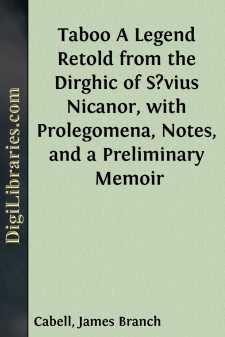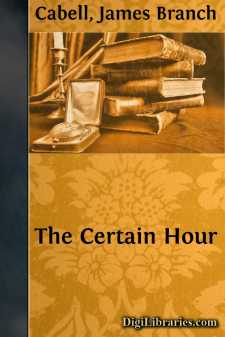Categories
- Antiques & Collectibles 13
- Architecture 36
- Art 48
- Bibles 22
- Biography & Autobiography 813
- Body, Mind & Spirit 142
- Business & Economics 28
- Children's Books 16
- Children's Fiction 13
- Computers 4
- Cooking 94
- Crafts & Hobbies 4
- Drama 346
- Education 46
- Family & Relationships 57
- Fiction 11829
- Games 19
- Gardening 17
- Health & Fitness 34
- History 1377
- House & Home 1
- Humor 147
- Juvenile Fiction 1873
- Juvenile Nonfiction 202
- Language Arts & Disciplines 88
- Law 16
- Literary Collections 686
- Literary Criticism 179
- Mathematics 13
- Medical 41
- Music 40
- Nature 179
- Non-Classifiable 1768
- Performing Arts 7
- Periodicals 1453
- Philosophy 64
- Photography 2
- Poetry 896
- Political Science 203
- Psychology 42
- Reference 154
- Religion 513
- Science 126
- Self-Help 84
- Social Science 81
- Sports & Recreation 34
- Study Aids 3
- Technology & Engineering 59
- Transportation 23
- Travel 463
- True Crime 29
Domnei A Comedy of Woman-Worship
Description:
Excerpt
It would be absorbing to discover the present feminine attitude toward the profoundest compliment ever paid women by the heart and mind of men in league—the worshipping devotion conceived by Plato and elevated to a living faith in mediaeval France. Through that renaissance of a sublimated passion domnei was regarded as a throne of alabaster by the chosen figures of its service: Melicent, at Bellegarde, waiting for her marriage with King Theodoret, held close an image of Perion made of substance that time was powerless to destroy; and which, in a life of singular violence, where blood hung scarlet before men's eyes like a tapestry, burned in a silver flame untroubled by the fate of her body. It was, to her, a magic that kept her inviolable, perpetually, in spite of marauding fingers, a rose in the blanched perfection of its early flowering.
The clearest possible case for that religion was that it transmuted the individual subject of its adoration into the deathless splendor of a Madonna unique and yet divisible in a mirage of earthly loveliness. It was heaven come to Aquitaine, to the Courts of Love, in shapes of vivid fragrant beauty, with delectable hair lying gold on white samite worked in borders of blue petals. It chose not abstractions for its faith, but the most desirable of all actual—yes, worldly—incentives: the sister, it might be, of Count Emmerick of Poictesme. And, approaching beatitude not so much through a symbol of agony as by the fragile grace of a woman, raising Melicent to the stars, it fused, more completely than in any other aspiration, the spirit and the flesh.
However, in its contact, its lovers' delight, it was no more than a slow clasping and unclasping of the hands; the spirit and flesh, merged, became spiritual; the height of stars was not a figment…. Here, since the conception of domnei has so utterly vanished, the break between the ages impassable, the sympathy born of understanding is interrupted. Hardly a woman, to-day, would value a sigh the passion which turned a man steadfastly away that he might be with her forever beyond the parched forest of death. Now such emotion is held strictly to the gains, the accountability, of life's immediate span; women have left their cloudy magnificence for a footing on earth; but—at least in warm graceful youth—their dreams are still of a Perion de la Forêt. These, clear-eyed, they disavow; yet their secret desire, the most Elysian of all hopes, to burn at once with the body and the soul, mocks what they find.
That vision, dominating Mr. Cabell's pages, the record of his revealed idealism, brings specially to Domnei a beauty finely escaping the dusty confusion of any present. It is a book laid in a purity, a serenity, of space above the vapors, the bigotry and engendered spite, of dogma and creed. True to yesterday, it will be faithful of to-morrow; for, in the evolution of humanity, not necessarily the turn of a wheel upward, certain qualities have remained at the center, undisturbed. And, of these, none is more fixed than an abstract love.
Different in men than in women, it is, for the former, an instinct, a need, to serve rather than be served: their desire is for a shining image superior, at best, to both lust and maternity. This consciousness, grown so dim that it is scarcely perceptible, yet still alive, is not extinguished with youth, but lingers hopeless of satisfaction through the incongruous years of middle age. There is never a man, gifted to any degree with imagination, but eternally searches for an ultimate loveliness not disappearing in the circle of his embrace—the instinctively Platonic gesture toward the only immortality conceivable in terms of ecstasy.
A truth, now, in very low esteem! With the solidification of society, of property, the bond of family has been tremendously exalted, the mere fact of parenthood declared the last sanctity....












